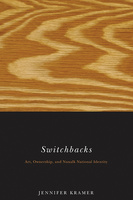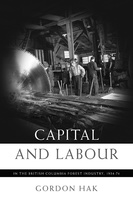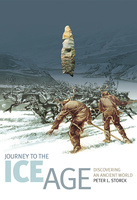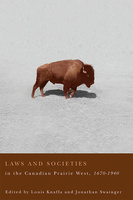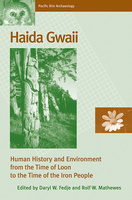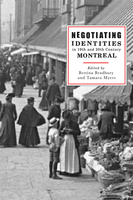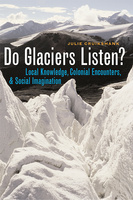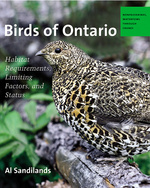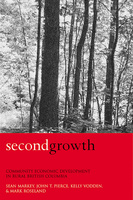The Cypress Hills
An Island by Itself
Building on the success of their earlier work, The Cypress Hills: The Land and its People, Hildebrandt and Hubner revisit the hills and bring new and updated material to this book.
Switchbacks
Art, Ownership, and Nuxalk National Identity
Switchbacks explores how the Nuxalk of Bella Coola, British Columbia, negotiate such complex questions as: Who owns culture? How should culture be transmitted to future generations? Where does selling and buying Nuxalk art fit into attempts to regain control of heritage?
Sex Workers in the Maritimes Talk Back
Sex workers in three Maritime cities discuss violence and safety, health, politics, and public perception of the trade, portraying the best and the worst facets of their working lives.
River of Memory
The Everlasting Columbia
River of Memory fosters connections between the river’s natural and human histories by encouraging readers to linger along the river’s shores and spend time reflecting on its dramatic mountain and plateau landscapes.
Journey to the Ice Age
Discovering an Ancient World
A captivating record of archaeological discoveries of the Early Paleo-Indians, who exploded suddenly on the archaeological record about 11,500 years ago and expanded rapidly throughout North America and South America.
Laws and Societies in the Canadian Prairie West, 1670-1940
Challenging myths about a peaceful west and prairie exceptionalism, the book explores the substance of prairie legal history and the degree to which the region's mentality is rooted in the historical experience of distinctive prairie peoples.
Prisoners of the Home Front
German POWs and "Enemy Aliens" in Southern Quebec, 1940-46
Detailing the day-to-day affairs of Germans civilians and POWs in Canadian internment camps camps during the Second World War, this book fills an important void in our knowledge of the Canadian home front.
Haida Gwaii
Human History and Environment from the Time of Loon to the Time of the Iron People
This book brings together the results of extensive and varied field research by both federal agencies and independent researchers, and carefully integrates them with earlier archaeological, ethnohistorical, and paleoenvironmental work in the region.
Negotiating Identities in Nineteenth- and Twentieth-Century Montreal
In this illuminating history of Montreal, readers will discover the links between identity, place, and historical moment as they meet vagrant women, sailors in port, unemployed men of the Great Depression, elite families, shopkeepers, reformers, notaries, and social workers.
Shaped by the West Wind
Nature and History in Georgian Bay
This wide-ranging history of Georgian Bay examines changing cultural representations of landscape over time, shifts between resource development and recreational use, and environmental politics of place -- stories central to the Canadian experience.
Our Box Was Full
An Ethnography for the Delgamuukw Plaintiffs
Daly explores the central meaning of the notion of land in the determination of Aboriginal rights with particular reference to the landmark Delgamuukw case that occupied the British Columbia courts from 1987 to 1997.
Do Glaciers Listen?
Local Knowledge, Colonial Encounters, and Social Imagination
Focusing on these contrasting views of glaciers between Aboriginal peoples and European visitors in northern Canada and Alaska, Julie Cruikshank demonstrates how local knowledge is produced, rather than discovered, through colonial encounters, and how it often conjoins social and biophysical processes.
Birds of Ontario: Habitat Requirements, Limiting Factors, and Status
Volume 1–Nonpasserines: Loons through Cranes
This work provides a comprehensive summary of the life history requirements of bird species in the Ontario, including information on habitat, limiting factors, and status.
Second Growth
Community Economic Development in Rural British Columbia
A look at historical and contemporary restructuring, linking development of rural communities with resource development and Aboriginal marginalization.

